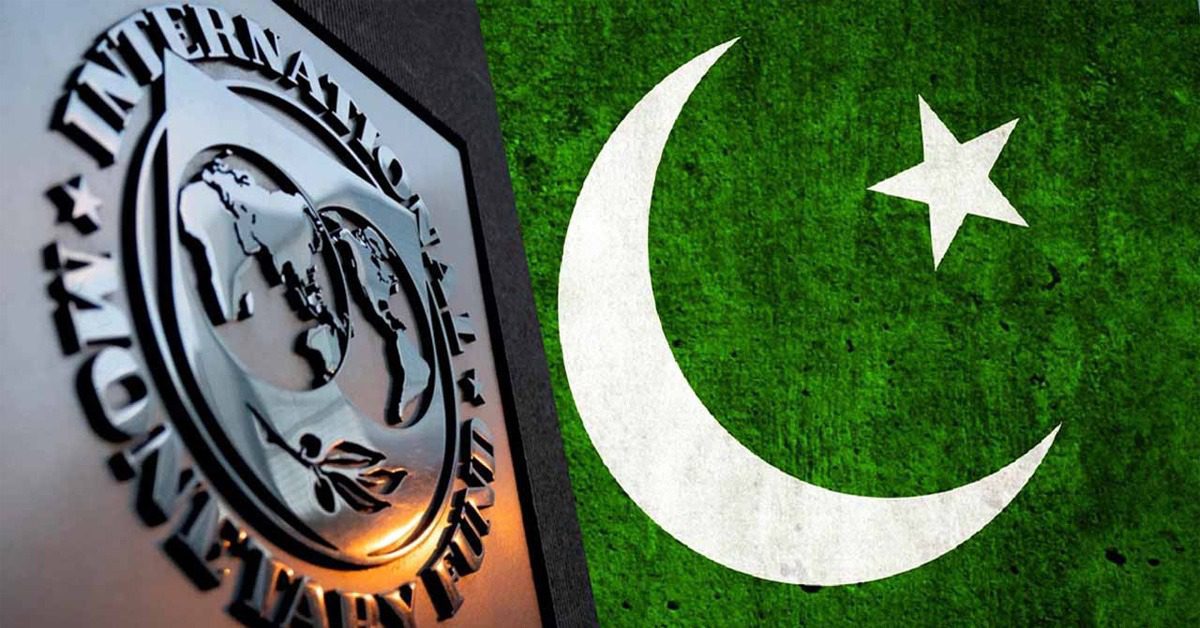The Pakistan Tehreek-e-Insaf’s (PTI) effort to stop the next multibillion-dollar bailout package failed on Friday as the International Monetary Fund (IMF) declined to intervene in Pakistan’s politics while encouraging the government to have fair resolutions of all electricity issues.
PTI founder Imran Khan has written to the IMF, requesting the global lender to thoroughly review the vote results before cutting any additional cheques for Islamabad.
“If the country receives a loan in such a situation, who will repay it?” he asked, expressing fear that such a loan would lead to an increase in poverty.
The former prime minister cautioned that without significant investment in the country, the debt load will continue to climb, emphasizing the need of political stability.
While breaking its silence on the PTI’s desire to involve the global lender in political concerns, an IMF spokeswoman expressed a willingness to discuss the next medium-term plan with the newly elected administration.
“The IMF, as an international institution with a narrow mandate on economic issues, does not comment on domestic political developments,” the IMF spokeswoman stated in response to the PTI’s letter.
On February 28, the IMF received a letter from a PTI spokeswoman about the Fund’s participation in the programme with Pakistan.
The PTI is challenging the February 8th election results, claiming to have won around 177 seats as opposed to 92, which were declared by the Election Commission of Pakistan (ECP) as independently elected members of the National Assembly. The PTI has also claimed they have documented evidence of election cheating and has urged that the IMF get involved in the inquiry.
“Given the importance of the institutional environment for economic stability and growth, we do encourage the fair and peaceful resolution of all electoral disputes,” stated a representative for the International Monetary Fund.
The PTI’s decision to submit the letter to the IMF also contradicted the party’s outspoken hostility to any foreign meddling in Pakistani internal affairs.
The move to involve the IMF in domestic political events added validity to concerns that former Prime Minister Imran Khan would go to any length to reclaim the authority he had lost due to a vote of no confidence in April 2022.
The IMF’s existing $3 billion short-term rescue plan will expire before the middle of next month, and Prime Minister Shehbaz Sharif has already directed the Ministry of Finance to begin negotiations on signing a new Extended Fund Facility (EFF).
The last EFF terminated in June without release of the $2.6 billion loan amount due to Pakistan’s inability to follow programme terms.
The last loan tranche of $1.2 billion from the present programme has yet to be delivered, and the IMF is awaiting the formation of the federal government before dispatching a team to Pakistan.
“We look forward to engaging with the new government to complete the second review under the current Stand-by Arrangement and, should the government request, support the formulation of a new medium-term economic programme,” a spokeswoman for the International Monetary Fund said.
PM Shehbaz has yet to publicly identify Pakistan’s new economic czar, despite an in-principle agreement to put Muhammad Aurangzeb in charge of the Finance Ministry.
Aurangzeb is not a Pakistani national. If he agrees to give up his foreign citizenship, he would be appointed a senator from Punjab and finance minister. If he keeps his foreign nationality, Aurangzeb will be the prime minister’s special assistant.
The IMF also outlined its goals for future interactions with Pakistan, which continues to rely on international financial institutions to cover its annual foreign funding needs of $25 billion to $30 billion for debt repayment and current account deficit financing.
According to the spokesman, the IMF’s goal is to help Pakistan adopt strong policies that would strengthen financial stability, resolve long-standing economic and underlying balance of payments concerns, and restore sustainable and inclusive development for the benefit of all Pakistanis.
The spokesman went on to say that in order to accomplish these goals, Pakistan must strengthen its public finances by implementing high-quality revenue initiatives that extend the tax base while increasing help for the most vulnerable.
The IMF is once again urging Pakistan to increase the tax burden on salaried and business folks by limiting the number of tax brackets, which would be very unhelpful and might cause anxiety among salaried workers.
The federal government’s spending increased by 50% to Rs7.5 trillion in the first seven months of this fiscal year, owing mostly to rising interest rates, which now account for roughly two-thirds of total expenditures.
Other priorities, according to the spokesperson, include restoring energy sector viability, improving institutional governance and anti-corruption effectiveness, reforming state-owned enterprises, building climate resilience, and creating a level playing field for private businesses to promote investment and job creation.
Despite the engagement of the IMF and the World Bank, Pakistan has been unable to address its energy sector difficulties because to lengthy policy prescriptions. The fiscalization of energy sector losses is not helping to reduce the circular debt, which currently totals close to Rs5.7 trillion for both the gas and electricity sectors.
The IMF had included an anti-corruption topic in its previous EFF programme, but the global lender did not actively pursue this objective.

